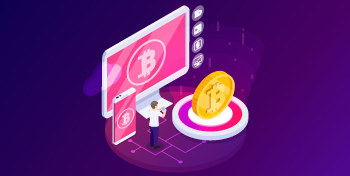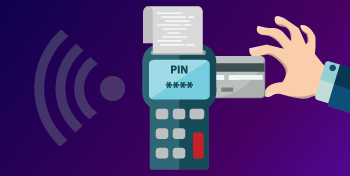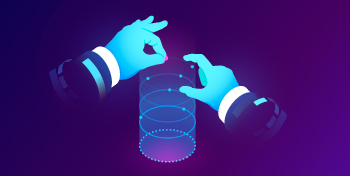We all use apps. Whether it’s VKontakte, Facebook, Odnoklassniki.<url>, Yandex Go, Uber, Firefox, Spotify or something else, applications have made their way into almost all areas of our lives. Regardless of whether the application is a web application, desktop or mobile, they all work about the same. You download and install it, register an account and work.
Now, most likely, you use at least a dozen applications every week. Starting from ordering food, taxi, arranging a meeting, and ending with booking the next Zoom class, applications are used for most of our actions, being an integral part of our daily experience.
Applications make tasks much easier to complete, and most popular applications are incredibly easy to use. After all, many of today’s most popular apps were created over several years, and cost millions of dollars.
But, despite the usefulness that many of these applications bring, there are a lot of disadvantages that make them less attractive than it seems at first glance. After all, they are usually owned and operated by corporations that don’t always pursue your interests – GAFAM (Google, Amazon, Facebook, Apple and Microsoft).
Misuse of data
The main one is the possibility of data collection and misuse, since applications collect more personal data, which, as a rule, they forget to tell us about. As a rule, if we really knew about it, we would most likely avoid using them.
This data may be sold to third parties without our knowledge, and may even be lost if the application is hacked. Not an ideal option.
Attachment to suppliers
There is also the issue of vendor blocking. If you’ve ever tried to opt out of using an app or service, but found it incredibly impractical or expensive. Here, you are familiar with the problem of blocking the supplier.
It can be very frustrating when you are forced to use an application that you are not satisfied with simply because you have signed a contract. Or they make it extremely difficult to transfer your settings, data, etc. to another application.
Censorship
Other users face the exact opposite problem. They are simply not allowed to use the applications they need because of local restrictions, censorship and monopolies.
This is especially evident on social media, as many social media companies have their own plans or are subject to the whims of local regulators and governments to limit what users are allowed to post.
Some countries have even gone further and banned social networks! Imagine that you will never be able to log into cryptocurrency Twitter again?
We know what you’re thinking… “If only there was an alternative!”.
There is an alternative!
As it turns out, it usually is. This is where the time has come to get acquainted with their decentralized counterparts – known as decentralized applications (or dApps).
If you read carefully about these projects Coinmarketrate.comthen, in fact, apps are connected to the blockchain (e.g. Ethereum or Binance Chain Smart) using smart contracts, which represent just a LEGO-like pieces of code used to automatically perform functions such as sending a payment, use the in-game item or delegation in staking.
Like any regular app, dApps have a user interface that you interact with. This is where you tell the application what to do by selecting options, entering information, clicking buttons, etc.
But this is where the magic happens. Everything you do through dApps is transferred back to its underlying blockchain using smart contracts. This gives dApps a number of unique properties that provide them with powerful capabilities.
They are decentralized
Have you ever tried to find your favorite app, but found that it was blocked in your region or deleted? This is known as censorship, and it is a serious problem in many countries.
DApps, on the other hand, operate on a decentralized blockchain network that can be hosted on thousands or potentially even millions of nodes (computers). Each of them stores a backup copy of dApps. They are not controlled by one entity!
This makes it almost impossible to block them, and also provides access to them 24 hours a day, 7 days a week no matter what. This makes them ideal for important applications such as healthcare and personal finance applications.
In most blockchains, almost anyone can start a node to add another backup copy of dApps, and for those who do, rewards are usually provided, for example, staking.
In addition, some dApps are also directly focused on community management, giving users a voice in the process of growth and development. This usually requires ownership of dApps management tokens, which give users the right to vote.
Open source
Unlike most modern consumer applications, the code of many Dapps is open source. This means that anyone with the skills or desire can look into its internal device and check if there are any hidden malware.
This makes it easy to find out exactly what an application does, what data it uses, what permissions it needs, etc., which is often not the case with ordinary applications.
This also means that if Dapps don’t meet the requirements, the community can easily duplicate and launch an alternative version (known as a fork), which is a strong incentive for developers to play fair.
Without trust
Usually, when concluding a transaction, a contract is needed to ensure that your counterparty fulfills his part of the transaction – that is, if you really trust him.
In Dapps, this trust is no longer part of the equation – they are, in fact, devoid of trust, since they use smart contracts to automatically fulfill all agreements concluded between you and other users.
Decentralized exchanges probably demonstrate this best, as they allow you to exchange one cryptocurrency for another. And this is without having to trust that you will get what you paid for.
However, you should be sure of the security of the Dapps itself. And it’s not always easy.
And, transparency
Since Dapps is based on the blockchain, there is a permanent record of it, its history of changes and all its actions.
This means that in the case of an error, it is easy to determine exactly when it occurred, who it affected, and often the cause. For example, whether it was the result of a developer error, an exploit, or something else.
This makes them super-transparent, and at the same time encourages developers to work in the interests of you and other users.
What are dApps used for?
In the last few years, Dapps have been gaining serious momentum, and now literally thousands of applications are available that cover a huge number of niches and industries. Today you can find an alternative to Dapps for many common applications. And although the choice is not as great as you are used to, you can find something that will interest you.
Some of the most popular uses of Dapps currently include:
- Trading: Dapps such as Uniswap and Aave allow users to trade their cryptocurrencies safely and anonymously.
- Social Media: Social media has also received Dapps processing. Including Steemit, a popular social blogging platform.
- Games: There is a huge selection of Dapps-based games, including AnRKey X, Blockchain Cuties and My Neighbor Alice.
- Entertainment: The Dapps industry also has its own YouTube counterpart, known as DTube. It is a video sharing platform powered by blockchain.
Unlike regular applications, which usually need to be downloaded and installed before use (unless it’s a web application), Dapps are usually accessible via a Dapp browser (for example, MetaMask or Brave Browser) and do not require installation.
Is the replacement equivalent?
Although decentralized applications have long been considered one of the Holy Grails of blockchain technology, the truth is that they are still largely experimental, and they still have to go through some growth difficulties before they can be considered real application killers.
It will likely take several more years before the technology reaches the same level of success as WhatsApp or Instagram.
And there are several main reasons for this.
Firstly, they are often not the most intuitive to use. Many (but not all) Dapps still suffer from some user experience issue as they are not built with the same budget as many regular apps.
As a rule, they also require you to be at least a little aware of cryptocurrencies, which can become a serious barrier to entry. After all, only 1% of the world’s population uses or holds cryptocurrencies.
But perhaps the most important thing is the general ignorance about what Dapps are and what advantages they give to users. This is very bad, because there are many really promising projects.
Nevertheless, great strides are being made, and Dapps are gradually becoming more recognizable, more powerful and more widespread. But there is still a lot of work ahead, and today’s users can be attributed to the earliest followers of the technology.


